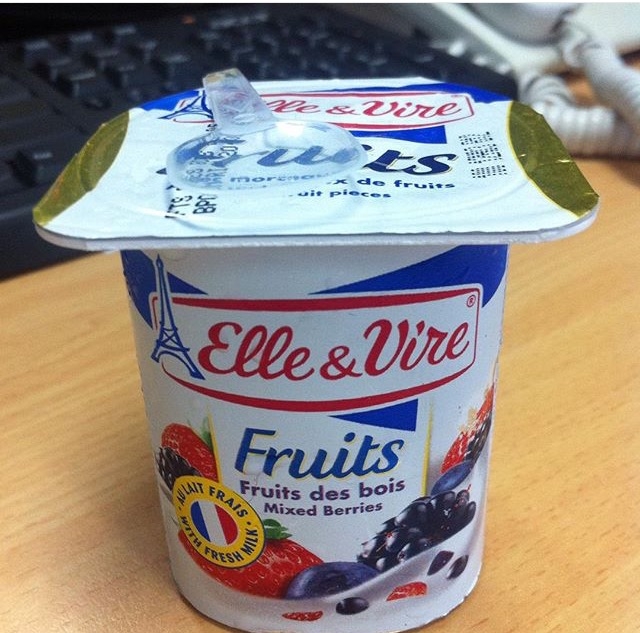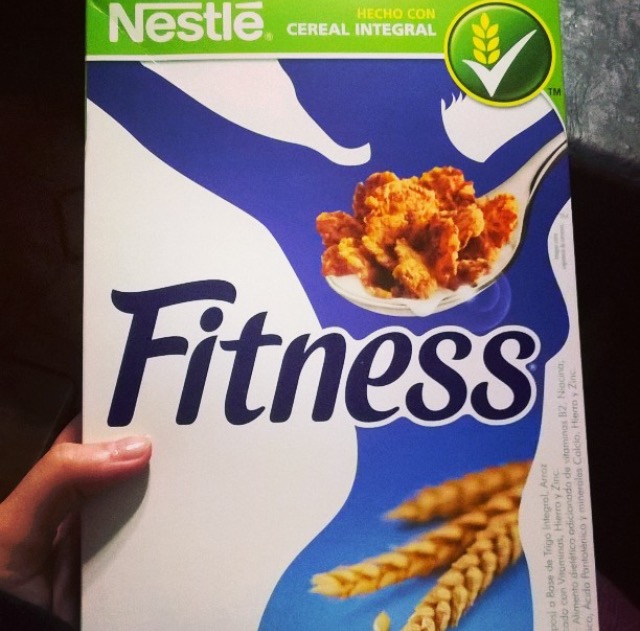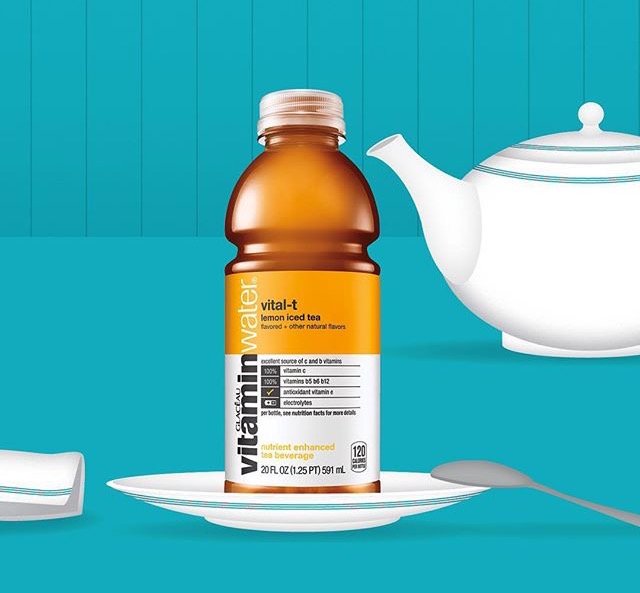Do You Know How Much Sugar is in that "Healthy" Snack?

Did you know if you removed all foods in the supermarket that contained added sugar you would be left with only 20% of produce. (Damon Gameau). Damon Gameau who leads a sugar- free life made a documentary called 'That Sugar film' where his aim was to test out a very high sugar diet. For 60 days Damon consumed the equivalent of 40 teaspoons a day which is the amount of sugar the average Australian consumers per day. The funny thing is, he didn't just shove his face with lollies, donuts and soft drinks. These sugars had to be hidden sugars that we wouldn't expect to be added into our perceived 'healthy' foods. Breakfast cereals in general are a big danger. Millions of them claim to be healthy but in fact are loaded with sugar. Lets take Nestle's cereal called 'Fitness' (whole grain cereal) with the logo being a tall, skinny lady with the ideal curves.
Image credit: Instagram/psycho_girl_96
A normal serving of Fitness whole grain cereal per person contains approximately 6 tablespoons of added white sugar. If the body shape of the women on the packet consumed this cereal everyday, the body on the cereal packet would take the shape of a stuffed turkey. Sales would then go shooting down. So called 'healthy' products are so well marketed that parents are convinced they are doing the right thing for their children buying foods with healthy slogans on the front, references to the food being natural and full of pretty images of bees and nature. Examples such as this can be apple juice, fruit compotes, etc. These products often have just as much, if not more sugar in them than junk food. 'VitaminWater', aggressively marketed as a healthy product is basically sugar-water. A bottle of VitaminWater contains 33 grams of sugar, making it more like a soft drink than to a healthy beverage. One tablespoon of barbeque sauce has two teaspoons of sugar. Isn't that a worry ?
Image credit: Flickr/vitamin_mania
The problem with consuming all this sugar is that your risk of fatty liver disease and Type II diabetes (in other words, premature death) are increasing far more rapidly then they should be. It's not about cutting all natural and added sugars out as a whole, the point is more about being aware of what foods contain hidden added sugars, so you can begin making good lifestyle choices to avoid health diseases later on. The underlying issue is that big sugar companies such as Coca Cola pay scientists to give results that they want to see. So that people keep consuming their sugary products and don't freak out on the fact that in a 355ml Coke can contains 10 teaspoons of sugar and this can lead to liver malfunction. Two years ago in the European Medical Journal showed that if a study was done by Pepsi, Coke or The Sugar Association, it was five times more likely to show no link between soft drink and disease as opposed to an independent study (Damon Gameau). This is just to show you the control big sugar companies have over what we eat and drink and the information we take in. Below is a short interview with Damon Gameau himself.
In Damon's 60 day experiment he did not increase his calorie intake, he just ate what you and I would call 'normal' foods like strawberry yogurt. At the end of Damon's experiment, he had gained about 15 pounds as well as 10 centimeters of fat around his stomach and waist. He also developed the early signs of pre-diabetes, heart problems, and non alcoholic fatty liver disease. A diet high in sugar can cause fat build up in the liver, which is exactly what happened to Gameau in just 18 days. Beyond these physical changes, Damon had intense mood swings and felt constantly lethargic after his short bursts of 'sugar highs'.
A good piece of advice to end on a positive note: Treat yourself occasionally and indulge in something really sugary and yummy every now and then. But on a regular basis try as much as possible to eat food in its pure and natural form (fresh meat/fish, fruit, vegetables and whole grain breads). This means avoid anything in a package, can or tin and stick with 'real foods' where you can identify exactly what the product is.









